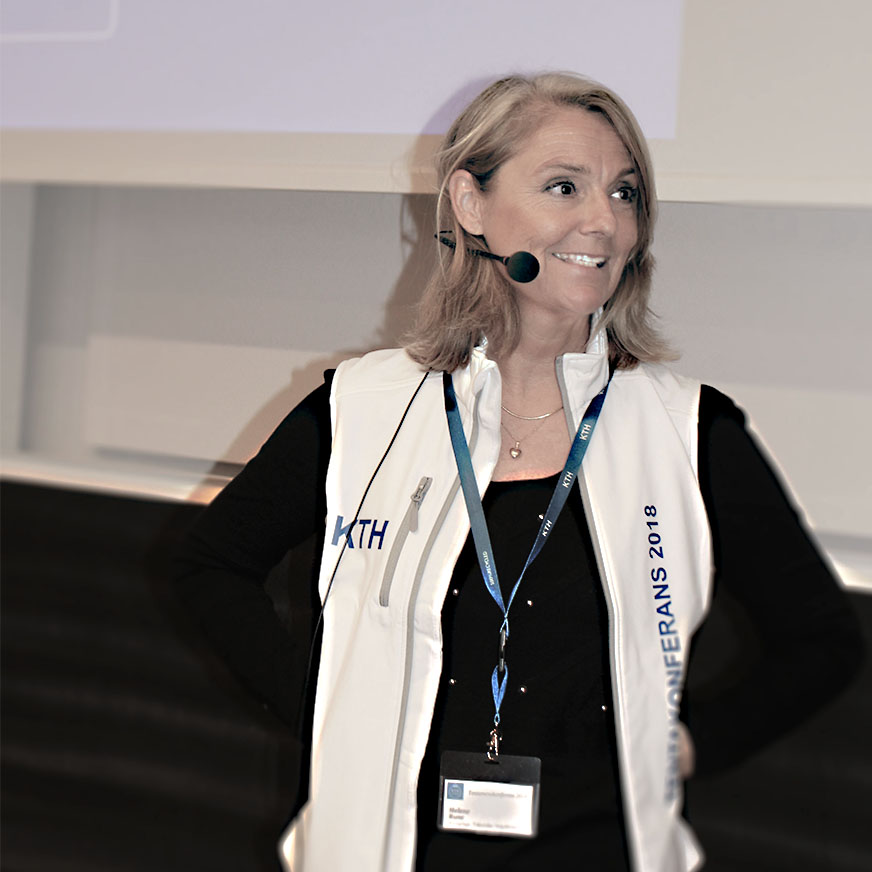Tens of thousands of written examinations during the pandemics puts the administration to the test

Annually about 90,000 written examinations are conducted at KTH, with a third taking place at SCI. Because of the pandemic, the examinations take place digitally and requires extra effort of the organization including the administrators.
Since 2016, the examination management at the SCI school has been coordinated with common routines and working methods. Examination rooms are handled centrally by four examination administrators.
– As head of administration at our school and thus responsible for examination administration, I am concerned that this arrangement should be efficient, legally secure and flexible. Written examination is an exercise of authority that must be handled correctly, says
Helene Rune
, Head of the administration at SCI school.
The pandemic has contributed to the fact that there is now a complete setup for zoom examinations. The examination administration has in a relatively short time implemented a set-up for zoom technology, trained zoom invigilators and created new communication platforms for both invigilators and others who work with examinations. invigilators are booked as usual before the exam periods and material for the them is sent out in digital format together with zoom links to the examinations. During the examination, the administration group has continuous contact in a digital invigilator chat with both invigilators and teachers to make sure that everything works smoothly. The examination group also enters the zoom rooms to be sure that everything is going well. About an hour before the exam begins the situation can be stressful if the technology breaks down or if invigilators do not show up due to illness.
– Then it is important to solve the problems quickly and ensure that all examinations will start, that all students and invigilators come to the right zoom room. Another critical part of the process is in the end of the examination as the information must be saved digitally and technical problems may occur. It is important for the group to be methodical, pedagogical and to solve problems quickly, says Helene Rune and continues to tell about things she would like to improve.
– The teachers want to be able to correct the examinations digitally. There are already technologies and various programs for this that after some modification could be useful for us. A KTH joint booking system for invigilators is also needed. This is not centrally coordinated today and we can therefore not optimize the booking progress. At present, the schools are competing for the same invigilators.
For the upcoming examination periods, GRU administration (undergraduate studies administration) will support teachers with CANVAS, which is the system where examination questions and answers are uploaded.
– Previously, the GRU administrators had limited access to the system. We have now completed a quick review of the system in order to be able to check that all relevant information is available and thus be able to support the teachers before an examination. Also during the examination, GRU administrators will be able to be back office in case any questions will occur. Sometimes, for example, the examinees have difficulty finding the examination room in Canvas.
Text: Sofia Nyström
